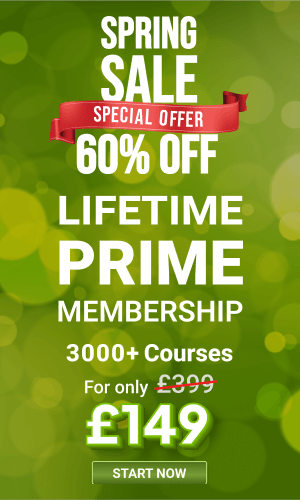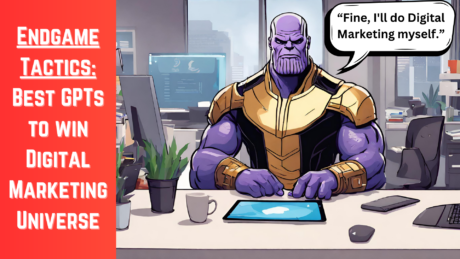We’ve all been there- staring anxiously at a blank page, struggling to figure out the ideal formula for building a killer resume. And knowing that employers spend less than a minute to evaluate whether you move to the next stage doesn’t help.. You know your resume should adequately portray your skills and talents, but you also wish to make it unique so that it hints at the characteristics that set you apart.
Thankfully, there are lots of strategies designed to help you do just that. We’ve rounded up expert advice to help you craft a stellar education-first resume, so get ready to whisk right into the interview chair!
Start by Honing Narrative Magic
You may have multiple walls adorned with credentials and accomplishments, but before you begin jotting them down on your CV, start by honing your writing skills. In today’s overly competitive environment, details matter more than ever. A tiny mistake, a single misspelling, or a general inaptitude with language can easily turn prospective employers against your application.
So don’t forget to flex those writing muscles before tackling your education-first resume. Make sure to consult the WritingUniverse academic writing professionals to browse through flawless, meticulously crafted free essay samples and learn how to structure content. What’s more, the website is filled with top-notch writing guides and formatting rules to help you skyrocket your writing skills in no time.
Compared to your motivation letter, which should portray your facility with words and creative flair, a CV is a succinct and to-the-point representation of your skills. However, it requires your mastery of the language just as much. Your wording must be concise and memorable.
Tailor Your CV through Research
If you’re fresh out of school and have never worked in a professional setting, it’s doubtful that you’ll immediately know what companies look for in a perfect candidate. But you can gain an advantage over other candidates by studying your target employers and determining what they look for in a candidate.
Start by determining the type of employment you want to apply for. Is it regular on-site work or a remote working job? Then go through myriad relevant job ads and build a list of the needs that you encounter most often. Some might ask for qualifications like A-levels or SAT; others might look for diverse talents like organization skills and language aptitude; still others might value extracurricular activities and social work. The key is to create a list of important requirements that you wish to focus on. This will provide you a significant edge over others who negligently send out generic CVs.
If you wish to go a step further (because you always can!), look even closer to decipher hidden meanings in the writing style of the institution you’re applying for. Whether you’re looking for a job or a scholarship at a prestigious university, there are always useful indications hidden in adverts that you may take advantage of. Try to interpret what they are searching for in a person and what values they maintain. The more in-depth your inquiry, the better.
Knowing What to Highlight
To make up for a lack of direct job experience, give plenty of information in all other parts of your CV to highlight the talents you can offer. Here is what to focus on and how:
Education
Use this area to emphasize your abilities by going into great detail about the exceptional grades you received, the topics you researched, important tasks you performed at college, and more. Maybe you graduated with honors or were the president of a debate group? The more positive qualities your experience sheds light on, the better. Instead of cramming in overt information in one area, try to make your resume colorful by including activities that highlight your different strengths.
Online courses and certifications
It’s not just your college success that impresses potential employers but also your general passion for learning. Include any online courses, certificates, or seminars you’ve taken, even if they aren’t part of your official education.
Languages
Include any languages you’re fluent in. Multilingualism is a much-appreciated skill in our increasingly globalized world; it drives effective communication in all aspects of modern life. Your aptitude in multiple languages may be particularly useful in specific positions or businesses.
Hobbies and interests
Although you may believe that your interests are unrelated to your job hunt, they may frequently be an excellent complement to a CV. If you have any interests that are relevant to the job you’re applying for, include them to demonstrate your talents and passion in the industry. Sometimes, including activities might be wise even if they’re not directly connected to the job. Running marathons, organizing fundraising activities, or even writing electronic music in Ableton may demonstrate your proactive attitude and ambitious mindset.
Include any voluntary work
If you have the time to prepare the way in advance, search for some opportunities for voluntary work in your area- this is what almost all employers value. You may start by contacting your school or institution to see if they have any volunteer opportunities listed. You may also call local companies or organizations to volunteer your skills for free; many would be happy for your assistance and will provide you with lots of training in exchange.
- The Importance of Impeccable Translation
Job possibilities frequently cross boundaries in our linked society. When creating an education-first CV, translation may be very important, especially if you studied in a non-English-speaking country or are seeking for positions in places where a different language is widely spoken. In such cases, the importance of translation cannot be exaggerated; a well-translated CV may open doors to worldwide employment opportunities, making it extremely valuable for students interested in working abroad or in multicultural settings.
Employers will find your application more relatable and enticing if you tailor it to local language preferences and industry conventions. Consider employing professional translators with resume writing experience for maximum accuracy. They can guarantee that your credentials are appropriately communicated in the target language. Furthermore, they may verify formatting, font, and style compatibility between the original and translated documents.
The Bottom Line
A well-crafted education-first resume can help you stand out in a competitive job market, whether you’re looking for opportunities locally or overseas. Make sure to spend some more time researching how a stellar resume shoul





 LOGIN/Sign up
LOGIN/Sign up




